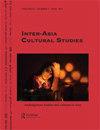这个村庄会说话吗?台湾左派指派剧场与纪录剧场
IF 0.4
4区 社会学
Q4 ANTHROPOLOGY
引用次数: 0
摘要
摘要本文以柴氏剧场剧团“任务剧团”的环境问题为研究对象,考察了纪录片戏剧的类型。“任务剧团”的创始人钟桥受到台湾左派作家陈映真的启发,从冷战后的90年代开始与亚洲许多国家的人民剧团合作。通过与村民的证明性表演和纪实剧调查历史、社会问题和现状,旨在对社会和文化问题进行美学和批判性反思。2016年,他导演并制作了一部名为《回归故乡:太溪村的故事》的纪录片,聚焦于1998年台塑公司(FPC)第六个石脑油裂化厂投产以来,村民如何遭受严重的空气污染、边缘化,以及他们经历的复杂性。本文从斯皮瓦克的《庶民能说话吗》中提出的一个批判性问题入手,希望在《回归故乡》中重新定位这个问题。透过关注民众,探讨指派剧场如何在战后台湾左派运动的历史脉络中定位自己。在此基础上,本文探讨了环境话语、乡民、纪实剧场、台湾民族想象主体等的交织方式。关键词:任务剧场钟桥纪录片剧场人民剧场左派运动台湾剧场人民专用语稳定下载显示表格1中文原文的定义是:“弄好了,弄好了,弄好了,弄好了,弄好了。”2 .关于“任务剧场”的更多信息,请参见:https://taiwantop.ncafroc.org.tw/group_detail/800.3纪实剧场是一种基于事实的表演,如记录、电影、报纸、官方报告和审判记录等材料。参见《简明牛津戏剧指南》(Citation1972)原中国如下宣言:“孤魂即是生前孤獨死後無處可依的靈魂之稱,其悲慘哀痛猶如活在現代的無產階級,依此,組織孤魂聯盟,竭力於無產階級解放運動”(王Citation1989, 22) 5也被称为“证词剧场”,由洛伦·克鲁格介绍。这是一个戏剧术语,它将戏剧构成一个“虚拟公共领域”,表达了表演者或参与者作为南非政治事件“见证人”的角色(Kruger Citation2019)。它还提到剧院“通常与反种族隔离运动联系在一起”。见https://esat.sun.ac.za/index.php/Testimonial_theatre.6梅农大坝最初计划建设,但梅农人民协会成立,汇集了环境,文化,艺术家和社会团体,组织了一系列抗议计划。更多信息请参见《社区认同与家园话语:以梅农反坝运动中的焦公带为例》(Shao Citation2015)参见“第六期石脑油裂解工程与经济发展”。(台塑集团Citation2021)。https://www.fpg.com.tw/uploads/images/media-center/ebook-top/2021/2021%20six%20TC.pdf.Additional信息王俊彦,作者简介王俊彦,国立台湾大学文化与表演研究系助理教授。他在康奈尔大学获得戏剧艺术博士学位。他获得了多项荣誉,包括S-AN美学奖,台湾优秀奖学金和富布赖特奖学金。主要研究方向为台湾当代戏剧、文化翻译、认识论与美学的关系。曾在《中外文学季刊》、《台湾:激进的社会研究季刊》、《跨亚文化研究》等刊物发表文章。本文章由计算机程序翻译,如有差异,请以英文原文为准。
Can the village speak? Leftist Assignment Theater and documentary theater in Taiwan
ABSTRACTThis essay examines the genre of documentary theater with a particular focus on environment issues by the theater group “Assignment Theater” (chaishi juchang). Chung Chiao, the founding leader of Assignment Theater, was inspired by Taiwanese leftist writer Chen Ying-zhen and began his collaboration with People’s theater groups in many Asian countries since the 1990s post-Cold war period. Chung investigates histories, social issues and current circumstances through testimonial performances and documentary dramas with villagers, aiming to develop esthetic and critical reflections on social and cultural issues. In 2016, Chung directed and produced a work of documentary theater entitled Return to Hometown: A Story of Taixi Village by focusing on how villagers were suffering from severe air pollution, marginalization, and the complexity of their experiences since the launch of the Formosa Plastics Corp’s (FPC) sixth naphtha cracker complex in 1998. The essay starts with a critical question raised by Spivak’s “Can the Subaltern Speak” in the hope of re-locating the question in Return to Hometown. It continues to explore how Assignment Theater positions itself in the historical context of the leftist movement in post-war Taiwan by paying attention to the people. By re-examining the above, the essay discusses the ways in which environmental discourses, the village people, documentary theater, and the imagined subject of Taiwan nationality, etc. are interwoven.KEYWORDS: Assignment TheaterChung Chiaodocumentary theaterpeople’s theaterleftist movementTaiwan theaterthe people Special termsTableDownload CSVDisplay TableNotes1 The original definition in Chinese goes as follows: “民眾劇場,屬於人民、由人民創作、為人民發聲的劇場。”2 For more information about “Assignment Theater,” please see: https://taiwantop.ncafroc.org.tw/group_detail/800.3 A documentary theater is a performance based on facts, as documented in materials such as records, films, newspapers, official reports, and transcripts of trials. See The Concise Oxford Companion to the Theatre (Citation1972).4 The original manifesto in Chinese goes as follows: “孤魂即是生前孤獨死後無處可依的靈魂之稱,其悲慘哀痛猶如活在現代的無產階級,依此,組織孤魂聯盟,竭力於無產階級解放運動” (Wang Citation1989, 22).5 Also referred to as “Theatre of testimony,” introduced by Loren Kruger. It is a theater term by constituting theater as a “virtual public sphere” with an expression of performers’ or participants’ role as of “witness” to the political events in South Africa (Kruger Citation2019). It also refers to the theatre “conventionally associated with the anti-apartheid movement.” See https://esat.sun.ac.za/index.php/Testimonial_theatre.6 The Meinong Dam was initially planned to build, yet the Meinong People’s Association was formed by bringing together environmental, cultural, artist and social groups to organize a series of protests against the plan. For more information, please see Community Identity and Homeland Discourse: A Case Study of the Jiao-gong Band in the Meinung Anti-Dam Movement (Shao Citation2015).7 See “六輕計畫與經濟發展” [The Sixth Naphtha Cracker Project and Economic Development]. (Formosa Plastics Group Citation2021). https://www.fpg.com.tw/uploads/images/media-center/ebook-top/2021/2021%20six%20TC.pdf.Additional informationNotes on contributorsChun-yen WangWang Chun-yen is assistant professor of cultural and performance studies at National Taiwan University. He received his PhD in theater arts from Cornell University. He is the recipient of multiple accolades including the S-AN Aesthetics Award, Taiwan Merits Scholarships, and a Fulbright Scholarship. Wang’s research interest lies in contemporary Taiwanese theater, cultural translation, and the relationship between epistemology and esthetics. His essays have appeared in Chung-Wai Literary Quarterly, Taiwan: A Radical Quarterly in Social Studies, Inter-Asia Cultural Studies, and others.
求助全文
通过发布文献求助,成功后即可免费获取论文全文。
去求助
来源期刊

Inter-Asia Cultural Studies
Multiple-
CiteScore
0.90
自引率
20.00%
发文量
22
期刊介绍:
The cultural question is among the most important yet difficult subjects facing inter-Asia today. Throughout the 20th century, worldwide competition over capital, colonial history, and the Cold War has jeopardized interactions among cultures. Globalization of technology, regionalization of economy and the end of the Cold War have opened up a unique opportunity for cultural exchanges to take place. In response to global cultural changes, cultural studies has emerged internationally as an energetic field of scholarship. Inter-Asia Cultural Studies gives a long overdue voice, throughout the global intellectual community, to those concerned with inter-Asia processes.
 求助内容:
求助内容: 应助结果提醒方式:
应助结果提醒方式:


